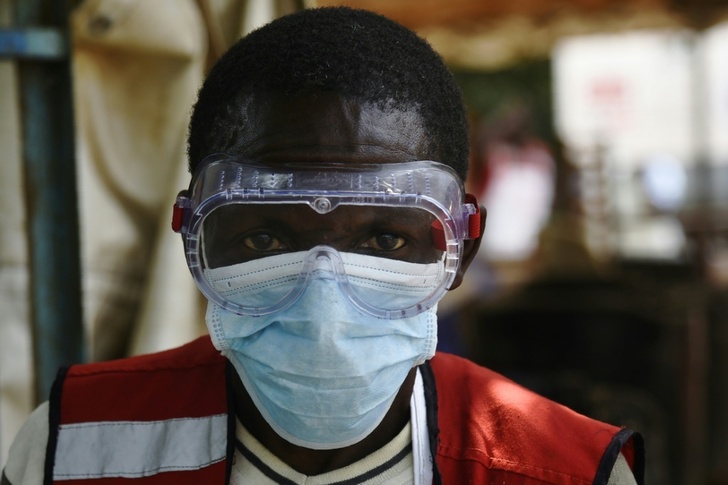A total of four people have died from the highly contagious Ebola virus in Uganda, where the authorities declared an outbreak earlier this week, health officials said on Friday.
"Three new deaths were recorded," the health ministry said in a statement, raising the toll from one to four after the country's first fatality from the virus since 2019 was reported on Tuesday.
The total number of confirmed cases now stood at 11 after four more infections were confirmed in the last 24 hours, the officials said.
It was not immediately clear if the 11 cases included the four fatalities.
Nineteen others suspected of contracting Ebola were receiving treatment at a hospital, the ministry added.
"The Ministry of Health Rapid Response Teams remain on ground to list and follow up contacts to the confirmed cases," it said, urging increased vigilance.
Authorities declared an outbreak in the central district of Mubende on Tuesday, announcing the death of a 24-year-old man.
Travel restrictions on non-essential work and a ban on large public gatherings have been imposed in Mubende, health ministry spokeswoman Emma Ainebyoona told AFP on Friday.
The first victim had tested positive for the relatively rare Sudan strain of the virus.
There have been seven previous outbreaks of the Sudan strain, including four times in Uganda and thrice in Sudan, according to the WHO.
Uganda, which shares a porous border with the Democratic Republic of Congo (DRC), has experienced several Ebola outbreaks, most recently in 2019 when at least five people died.
The DRC last month recorded a new case in its violence-wracked east, less than six weeks after an epidemic in the country's northwest was declared over.
- Difficult to contain -
Ebola is an often fatal viral haemorrhagic fever. The death rate is typically high, ranging up to 90 percent in some outbreaks, according to the World Health Organization.
First identified in 1976 in the DRC (then Zaire), the virus, whose natural host is the bat, has since set off a series of epidemics in Africa, killing around 15,000 people.
Human transmission is through body fluids, with fever, vomiting, bleeding and diarrhoea the main symptoms.
Outbreaks are difficult to contain, especially in urban environments.
People who are infected do not become contagious until symptoms appear, which is after an incubation period of between two and 21 days.
At present there is no licensed medication to prevent or treat Ebola, although a range of experimental drugs are in development and thousands have been vaccinated in the DRC and some neighbouring countries.
The worst epidemic in West Africa between 2013 and 2016 killed more than 11,300 alone. The DRC has had more than a dozen epidemics, the deadliest killing 2,280 people in 2020.
gm-ho/amu/bp
© Agence France-Presse
Your content is great. However, if any of the content contained herein violates any rights of yours, including those of copyright, please contact us immediately by e-mail at media[@]kissrpr.com.
Source: Story.KISSPR.com

